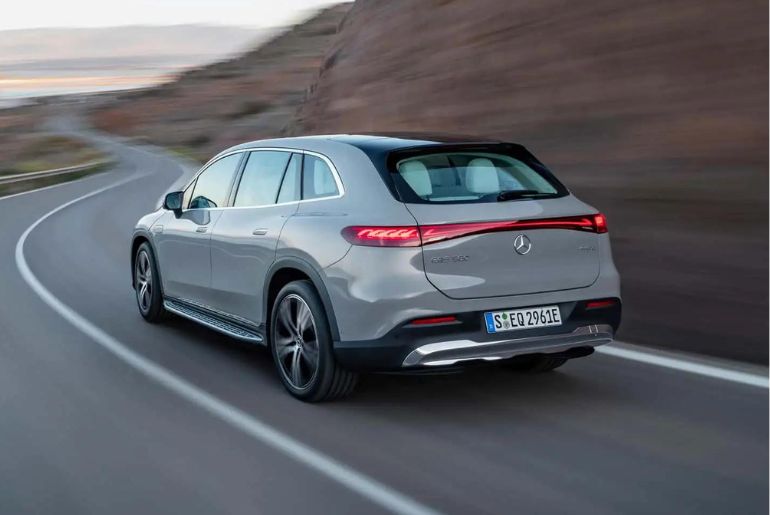Compared to the vehicle from the 2023 model year, the Mercedes-Benz EQS SUV from the 2024 model year is noticeably more efficient and has a far greater EPA range.
Compared to the previous model, which had a battery capacity of roughly 108.4 kWh, the most recent model has a capacity of 118 kWh. The driving range advantage is mostly due to the 10 kWh, or 9% bigger battery capacity, along with other improvements.
Alabama, USA is the location of the Mercedes-Benz EQS SUV’s local manufacturer. Approximately 15,000 units have been sold in the US since the model’s mid-2022 debut.
The EPA Combined range of the entry-level EQS 450+ SUV version, which has rear-wheel drive, amounted to 339 miles. The all-wheel drive versions have 330 miles of EPA range—45 miles or almost 16% more than previously. The top-of-the-line 2024 Mercedes-Maybach EQS 680 4Matic SUV has 321 miles.
We assume that the gain for the 450+ version is smaller because it was partially compensated by the larger 21-inch wheels. This version previously came with 20-inch wheels.
Energy consumption, including charging losses, of the 2024 Mercedes EQS SUV is higher than before.
The EQS 450+ SUV with 21-inch wheels, is estimated at 86 MPGe or about 392 watt-hours per mile (2.6 miles/kWh). This drops a few per cent to 83 MPGe: 406 Wh/mi or 2.5 miles/kWh in the case of the regular all-wheel drive versions, referred to as 4Matic.
The top-of-the-line 2024 Mercedes-Maybach EQS 680 4Matic SUV is the least efficient, rated at 81 MPGe: 416 Wh/mi or 2.4 miles/kWh.
The prices of the Mercedes-Benz EQS SUV appear to be almost unchanged. The model starts at an MSRP of $104,400, which is the same as a year ago. The all-wheel drive version costs the same, $107,400. However, the EQS 580 4Matic SUV version is $1,400 more expensive, at $127,350. In all cases, we have to add a $1,150 destination charge.
The Mercedes-Maybach EQS 680 4Matic SUV listed on the manufacturer’s website is still the same 108-kWh battery version, so we are not sure whether its price of $179,900 will be valid for the 2024 model year.
The model is not qualified for the $7,500 federal tax credit due to the price tag exceeding the $80,000 cap.


